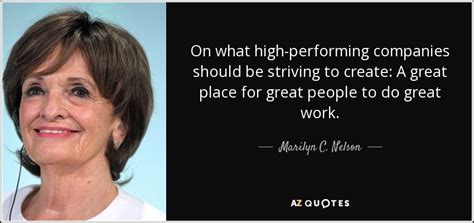A Quote by Robert J. Waldinger
When it comes to health care policy, we keep failing to take seriously the value of human relationships. The cost of this oversight is staggering.
Related Quotes
I feel constantly the tension of the quarterly cycles, the drive to produce shareowner value at the cost sometimes of customer value and employee value. [But] if you take equal care of the employees, they will take equal care of the customers and then we will get an equal or better opportunity for our shareowners.
I'm not optimistic about reform in many, if any, policy areas at all. I think we'll make further progress by inventing new things that aren't much regulated yet and outracing bad policy. I look at so many policy areas - regulation, regulatory reform, health care reform - it's all failing, we're not making improvements, we're going backwards.
The health of a society is truly measured by the quality of its concern and care for the health of its members . . . The right of every individuals to adequate health care flows from the sanctity of human life and that dignity belongs to all human beings . . . We believe that health is a fundamental human right which has as its prerequisites social justice and equality and that it should be equally available and accessible to all.
Withdraw from the Canada Pension Plan... Collect our own revenue from personal income tax... Resume provincial responsibility for health-care policy. If Ottawa objects to provincial policy, fight in the courts... [E]ach province should raise its own revenue for health... It is imperative to take the initiative, to build firewalls around Alberta.
And that means that no matter how we reform health care, we will keep this promise to the American people: If you like your doctor, you will be able to keep your doctor, period. If you like your health care plan, you'll be able to keep your health care plan, period. No one will take it away, no matter what.
The President's policy proposal, known as 'chained CPI,' would re-calculate the cost of living for Social Security beneficiaries. That new number won't keep up with inflation on things like food and health care -- the basics that we need to live. In short, 'chained CPI' is just a fancy way to say 'cut benefits for seniors, the permanently disabled, and orphans.'






































